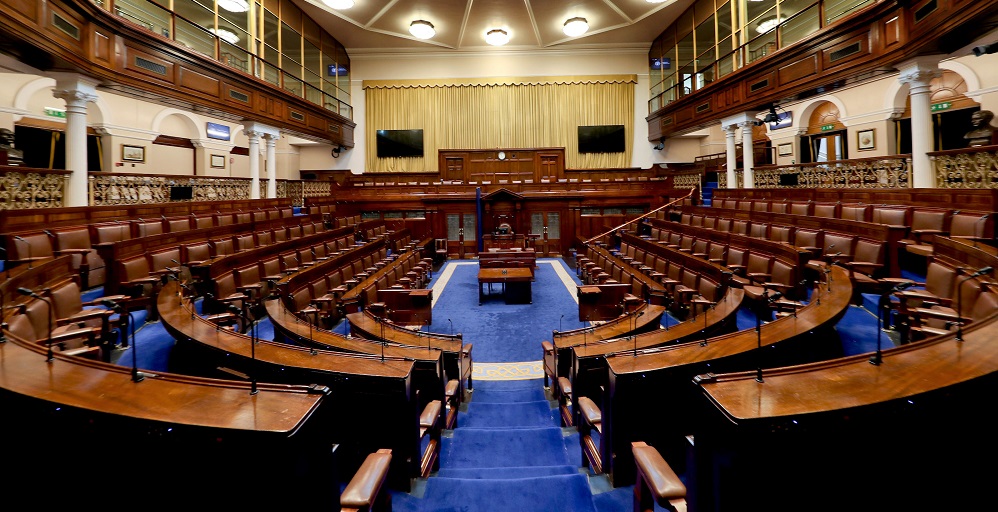The ballot paper for Dublin South Central has seen a wave of additions in recent weeks.
It was already known that Patrick Costello of the Greens, Labour’s Darragh Moriarty and People Before Profit’s Hazel De Nortúin would be the general election candidates in the constituency, and now we know the identity of Sinn Féin, Fine Gael and the Social Democrats’ candidates.
Sinn Féin will be looking to win two seats in the constituency with 2020’s poll-topper Aengus Ó Snodaigh running alongside councillor Maire Devine.
Councillor Jen Cummins has been chosen to run for the Social Democrats in a constituency they are looking to win for the first time.
Senator Mary Seery-Kearney will line out for Fine Gael as she looks to win back a seat the party lost in the 2020 general election.
The four-seater has an informal reputation as the most left-leaning constituency in Ireland, with the 2020 general election seeing no candidates from Fianna Fáil and Fine Gael elected.
Ó Snodaigh nearly doubled the quota in 2020 with 39.3% of the vote, with People Before Profit’s Bríd Smith, then Independents4Change TD Joan Collins and Patrick Costello of the Greens winning seats (since 2020, Joan Collins has represented her own party, Right2Change).
Ó Snodaigh, Collins and Costello will be running for re-election.
Sinn Féin doubling up in the constituency is an admission that they left an extra Dáil seat behind them in 2020; had they run an additional candidate in 2020, they most definitely would have won a second seat.
No party has won two seats in the constituency since Labour’s double haul in 2011 which saw Eric Byrne and Michael Conaghan elected.
Ó Snodaigh was first elected as a TD in the 2002 general election, while Devine appeared on the ballot for Sinn Féin in the 2016 general election in the constituency prior to her election to the Seanad.
South-West Inner City, Ballyfermot-Drimnagh and parts of Kimmage-Rathmines are the two local electoral areas that make up Dublin South Central at a local level.
The Dáil constituency will see a battle of three South-West Inner City councillors; Sinn Féin’s Máire Devine, Labour’s Darragh Moriarty and the Soc Dems’ Jen Cummins.
All three councillors were elected in June; Devine was the only successful candidate of Sinn Féin’s three, Moriarty won a full term to Dublin City Council after being co-opted into Senator Rebecca Moynihan’s council seat in 2020 and Cummins won the Soc Dems’ first-ever seat in the constituency.
South-West Inner City perfectly captured what went wrong for Sinn Féin in June: the party, which has championed itself as a left-wing government in waiting since the 2020 general election placed below parties to their left in one of their electoral strongholds.
Sinn Féin could only amass 12.1% between their three candidates; for comparison, Moriarty achieved 12.2% by himself and Cummins received 10.9%.
Devine’s 5.5% share of the vote was compensated by receiving transfers from other parties of the left on the ballot in South-West Inner City.
Green councillor Michael Pidgeon pulled off the rare feat of being elected on the first count in two consecutive elections, with his 22.6% of first preferences in 2019 declining slightly to 19.2%.
Labour’s share of the vote increased from 11.4% in 2019 to 12.2% this year, while the Soc Dems vote went from 7.8% in 2019 to 10.9% this year.
The slight decline in the Green vote and a slight rise in Labour and Social Democrats vote may end up replicating itself at a general election should those trends carry over into a general election.
Elsewhere in South-West Inner City, Sinn Féin had to contend with People Before Profit’s Kelsey May Daly outpolling each of their candidates and in a minor upset, Aontú’s European candidate Aisling Considine outpolling two of Sinn Féin’s three candidates.
Considine wasn’t successful in winning a local or European seat but will be running in Dublin South Central in a bid to cause more headaches for Sinn Féin.
Candidates to Sinn Féin’s left on economic and social issues outpolling Sinn Féin was to be expected, but a party outpolling Sinn Féin in one of their strongholds – running explicitly on an explicitly social conservative platform no less – means that the party will have to cast a wider net at the general election.
Sinn Féin’s rightward pivot on the likes of immigration and Gaza in the lead-up to the local elections (and in recent weeks, controversy over the trans issue in Stormont) has caused the socially progressive parties such as Labour and the Soc Dems (and to a lesser extent, PBP) to mop up the wavering progressive vote.
Labour’s vote in the 2020 general election was 4.8% and the Social Democrats’ vote was 3.7%, with Costello winning a seat for the Greens with 9.3%.
The Dublin South Central race saw a shake-up in the form of Bríd Smith announcing last summer she would not be seeking re-election to the next Dáil.
The constituency will remain as a four-seater at the upcoming general election despite suggestions it could be increased to a five-seater to accommodate for population growth in the area.
It was decided that Dublin Mid-West would be the beneficiary of the extra Dáil seat in South-West Dublin.
